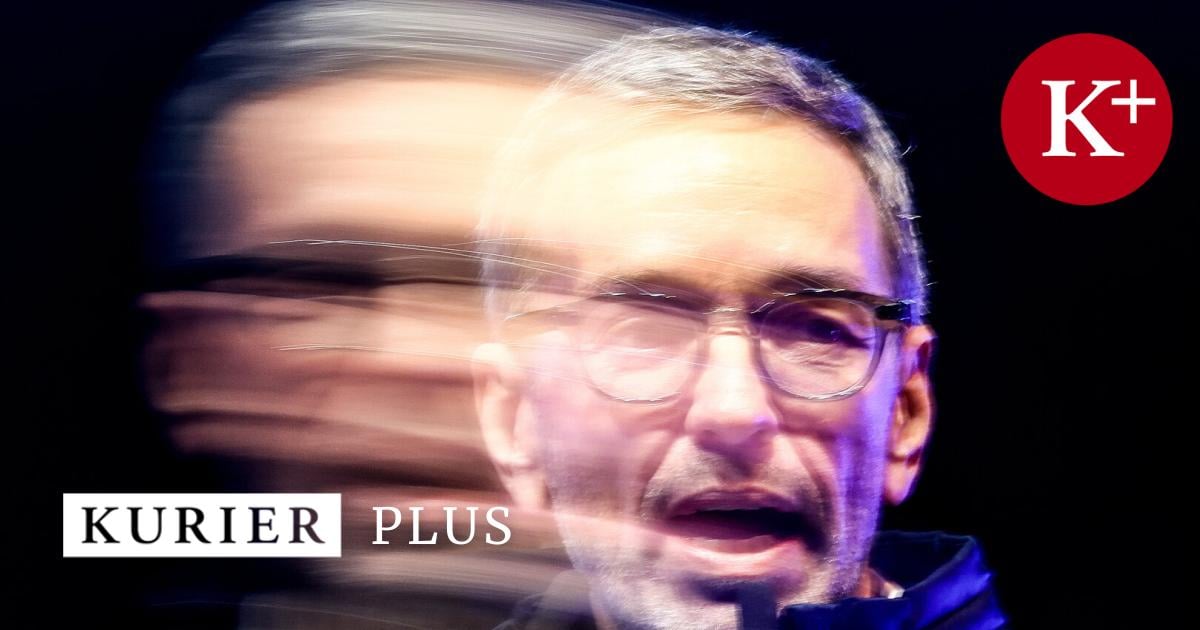The “Revolt in Paradise”
But: Where does this discomfort, this anger actually come from? Cuperus calls this the “revolt in paradise”: right-wing populism has spread especially in richer European countries; Austria was Europe’s “test laboratory” in the 1980s with Jörg Haider. The parameters are still the same today: living conditions are good, but the lower middle class has the feeling that their personal paradise is in danger – due to migration, globalization, social progress. The populists are activating this, and this feeling is partly true, says Cuperus: “This layer notices that the welfare state no longer functions efficiently and in a spirit of solidarity” – doctors are overbooked, private replacements cannot be afforded; Apartments are becoming more expensive and the job market is getting tighter. The result: You feel betrayed by the system – and the populists have a scapegoat ready.
But blaming voters for the success of the right-wing populists is wrong, he says. “The established parties are complicit in the emergence of the populist revolt. You should have heard the alarm bells ringing years ago.” The center parties, Christian and Social Democrats, have lost contact with parts of the population – “especially in the periphery,” says Cuperus. This is visible in the election results: Vienna, for example, which voted completely contrary to rural Austria, or the rural areas of the Netherlands, where “people from smaller rural towns and the less educated are revolting against the academic professionals in the cities,” as Cuperus says . “Populism is therefore also a “revolt of the periphery”.
The gap between these milieus is now a bigger factor than the traditional political categories of left and right, says the political consultant. “It’s about city versus country, well-educated versus less well-educated, locals and newcomers.” Some feel robbed of their traditions and over-regulated, others believe progress and global networking are the only true thing.
No more exchanges
Of course, this discomfort has always existed. But the distance between the “bubbles” is greater than ever – there is almost no exchange. “In the church, in the army, in the union, in the pub, many parts of the population used to meet each other, there was exchange, and that promoted acceptance,” says Cuperus. There are hardly any rooms like this anymore.
Endre Borbath also made this observation, especially among young voters. “The world in which the boys grew up is strongly influenced by globalization and open borders. They don’t think in the categories that shaped older generations politically.” And, party researcher Bobarth continues, “they also have much less trust in the well-known political elites.” For them, Christian Democrats and Social Democrats are no longer parties, the answers can respond to your questions or challenges. Cuperus even says that the traditional parties have to “reinvent themselves”.
Copy? Exclude?
But how? Endre Borbath’s observations are not very encouraging. What many conservatives in Europe have tried – simply “copying” right-wing populist ideas – is usually counterproductive. The more central right-wing populist positions – anti-immigration attitudes and skepticism towards European integration – are normalized and brought to the center, “the more successful the far right parties will be,” he says.
Exclusion doesn’t help either, says Cuperus; many right-wing populists make a living from it. If voters feel marginalized, they talk to “political outlaws” – see Trump. Pointing out his lies and false promises doesn’t help either: “The more we hit him, the stronger we make him.”
The fact that right-wing populists, once in power, could greatly weaken or even abolish democracy does not seem to matter to many voters. The danger is certainly there: “We see that in countries where right-wing nationalist parties have come to power without coalition partners – for example Trump in the USA or Viktor Orbán in Hungary – these parties are actually changing democracy,” says Bobarth. They have a strong majority understanding of democracy: “If the majority decides that they don’t want immigrants, there are no human rights or asylum rights that conflict with that. In their view, whoever wins the elections has the right to change the system according to their ideas.” And, according to the Hungarian political scientist, who sees Orbán’s “illiberal democracy” in mind, these could well be fundamental political changes. “Orbán and Trump see their election results as a mandate for almost unlimited power.”
Things look different when right-wing populists are partners in a coalition. This limits options for action, something the FPÖ also found out after participating in government several times. Geert Wilders is also an example of this: after his election victory, he had to give up many positions and was unable to become prime minister himself.
Is this the way to get out of the populism trap? No, says René Cuperus. “I’m afraid populism will never go away. Right-wing populists may even be the new people’s parties.” But: “We have to start forcing them to become more moderate. Otherwise we will remain divided societies – and that undermines the strength of Western democracies in their global fight against autocracy.”
